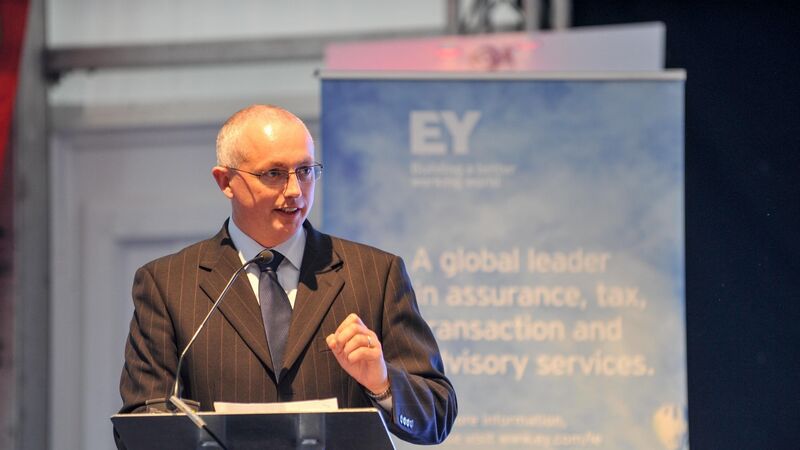We need to ensure Ireland continues to claim share of Foreign Direct Investment

IRELAND remains in an enviable position compared to many of our European neighbours as we continue to punch above our weight when it comes to foreign direct investment from multi-nationals and global tech companies.
But how will city regions fare in what is bound to be an increasingly challenging and competitive market and how can Cork maintain its attractiveness for those wishing to expand or establish operations in Ireland?
According to EY’s European Attractiveness Survey published recently, Ireland has increased its ranking in the European league table of most attractive destinations to eighth from tenth position, out of a total of 47 countries. This is an impressive performance and follows the securing of 191 FDI projects in 2019 and a particularly strong year in 2018, with investment across 205 FDI projects.
While the IDA recently reported a 6% reduction in new investments during the first six months of this year compared to the same time last year, we must remember that Ireland remains a powerhouse in this area and we hold first position for the greatest number of projects per million population.
The impressive performance of investments in digital tech and business services are noteworthy features of Ireland’s performance in 2019, with Cork well placed to continue to be attractive to FDI as we have particular strengths in these areas. This month we have already seen 140 new jobs in the pharmaceuticals sector announced.
Ireland’s FDI strategy is one that focuses on the value and quality rather than volume.
Ireland’s performance in 2019 reflects a marked improvement of over 40% when compared with 2017, which points to the sustainability of our attractiveness. The Business Services, Digital and Finance sectors attracted most FDI in Ireland in 2019, collectively accounting for 69% of new projects. EY analysis shows that 80% of FDI projects in Ireland are likely be maintained despite COVID-19, due to our highly competitive, service-orientated FDI investments.
Cork’s location is also one that drives further appeal to FDI investors. The thriving hotspot of startups and businesses are located in a surrounding that lends itself to a work-life balance that is much sought after and of high priority for international investors. In addition, notwithstanding all of our recent moves to virtual, Cork’s location also offers strong travel links, with a 2.5-hour train journey to Dublin, a 1.25-hour flight to London, not to mention the Port of Cork.
Many multinational companies have already seen what Cork has to offer and have invested large sums into our economy while creating thousands of jobs opportunities including Apple, Facebook, Eventbrite and Boston Scientific. It is unsurprising with so many multinationals selecting Cork as their preferred European base that Cork has been named the ‘Best Small City in Europe for Friendliness’ by the Financial Times in 2018.
Last year the Cork Chamber highlighted that Cork has been in an unprecedented phase of growth, thanks to the unique blend of international firms and strong indigenous businesses that work symbiotically. Cork is also regarded as an area with a highly educated and skilled talent pool, with University College Cork named University of the Year for the fifth time by the Sunday Times, holding a ranking in the top 2% of universities globally. In addition, what was the Cork Institute of Technology, now bolstered by the creation of the Munster Technological University, is also internationally regarded for their innovation, research and deep connections with industry.
In short, Ireland – and indeed Cork - is good for FDI and FDI is good for Ireland. Overseas investors are here for solid commercial reasons. And those reasons are inextricably bound up with the trinity of tax, talent and our competitive business environment. However, the announcement by IDA Ireland of their half-year results last week serves as a timely reminder that we cannot afford to be complacent in light of the challenging period that lies ahead four our economy, and specifically for FDI.
Third-level institutions across Ireland are facing enormous challenges at present, not least of which is funding for next year. How will they cope with the impact of COVID-19? There is a significant cohort of overseas students in Irish universities and we must ask how many of them will come back and how many will sign up for courses here once the COVID-19 travel restrictions have been lifted. The new Minister for Higher Education is faced with the task of ensuring our universities are set up for success and maintain their attractiveness for overseas students.
However, homegrown talent is only one side of the coin. The new Government will also need to keep a keen eye on important quality of life indicators to ensure that we continue attracting talent from other European countries and farther afield. Thinking about the lived experience of those coming to live here from elsewhere, most are faced with eye-watering rents, not helped by difficulties getting to and from work due to the limitations of our public transport system. Furthermore, much of what has traditionally made our towns and cities attractive has been diluted as a result of COVID-19. While we navigate through the lifting of restrictions in a sensible manner, the Government should seize what’s within its control quickly in the critical areas of housing and public transport.
Nonetheless, Ireland still offers a very competitive environment for business, not least our EU market access. The Government must be mindful of that when making decisions relating to the opening up of overseas travel.
EY’s analysis also shows that investment projects from European companies into other European countries represented more than half (52%) of FDI in the past three years. The US continues to be the most active investor country in Ireland, accounting for 61% of 2019 projects.
With that in mind, managing our political relationships with the US and within the EU, particularly post-Brexit, will be crucial. The COVID-19 crisis has thrown into sharp relief where things are made and the global nature of supply chains. We have heard protectionist voices in the US and elsewhere, and we can expect global trade policies to be increasingly seen through a focused national lens.
We need to be part of the debate about the trade-off between the resilience and efficiency of supply chains. In areas where we are particularly strong, such as medical device and pharmaceutical manufacturing, there needs to be active engagement on topics such as the regulatory and quality record, the proximity to key European markets, and the security and predictability of the Irish business environment.
While Cork and Ireland will continue to battle against COVID 19, global trade tensions and the effects of Brexit, our position as a world-leading FDI location will be come under challenge as a result of the dislocation caused by COVID-19. While this risk is not unique to Ireland, the new Government should act swiftly to limit the damage and ensure that Ireland is in a position to continue claiming the outsize share of FDI that has contributed so crucially to our success in recent years.







 App?
App?




